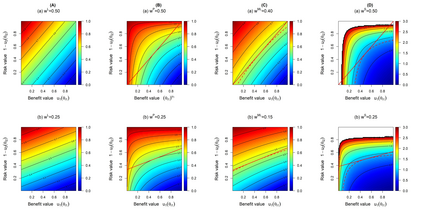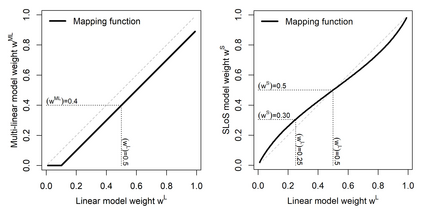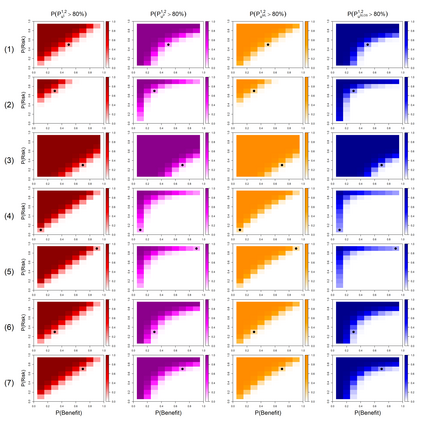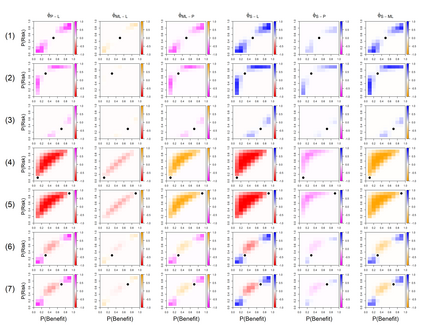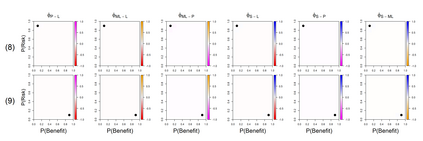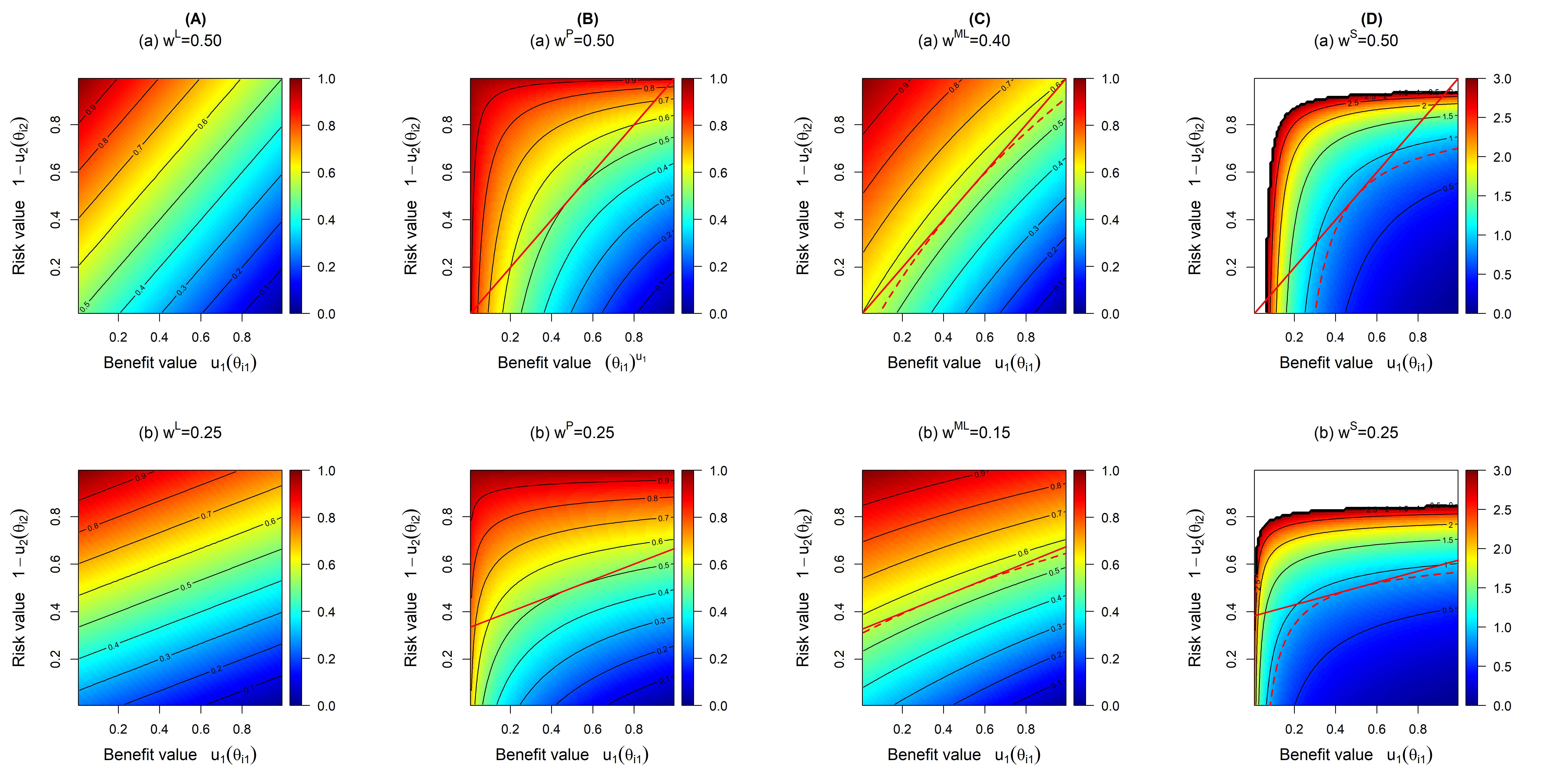Multi-criteria decision analysis (MCDA) is a quantitative approach to the drug benefit-risk assessment (BRA) which allows for consistent comparisons by summarising all benefits and risks in a single score. The MCDA consists of several components, one of which is the utility (or loss) score function that defines how benefits and risks are aggregated into a single quantity. While a linear utility score is one of the most widely used approach in BRA, it is recognised that it can result in counter-intuitive decisions, for example, recommending a treatment with extremely low benefits or high risks. To overcome this problem, alternative approaches to the scores construction, namely, product, multi-linear and Scale Loss Score models, were suggested. However, to date, the majority of arguments concerning the differences implied by these models are heuristic. In this work, we consider four models to calculate the aggregated utility/loss scores and compared their performance in an extensive simulation study over many different scenarios, and in a case study. It is found that the product and Scale Loss Score models provide more intuitive treatment recommendation decisions in the majority of scenarios compared to the linear and multi-linear models, and are more robust to the correlation in the criteria.
翻译:多标准决定分析(MCDA)是药物利益风险评估的一种定量方法,它允许通过将所有利益和风险汇总到一个分数中来进行一致的比较。MCDA由几个部分组成,其中一个部分是效用(或损失)得分函数,确定如何将效益和风险汇总到一个单量中。虽然线性效用分数是BRA最广泛使用的方法之一,但人们认识到它可能导致反直觉性决定,例如建议一种极低效益或高风险的治疗。为了克服这一问题,提出了分数构造的替代方法,即产品、多线性和规模损失计分模型。然而,迄今为止,关于这些模型所隐含的差异的大多数论点都是超自然的。在这项工作中,我们考虑用四个模型来计算总效用/损失得分数,并在对许多不同情景的广泛模拟研究中和一项案例研究中比较其业绩。发现,产品和规模损失评分模型提供了比线和多线性损失计分模型在多数假设中提供更直观的治疗建议。

